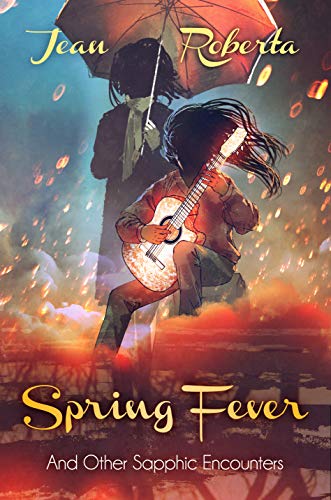Lately, our TV and computer screens have been filled with warnings about COVID-19. “Stay indoors!” say all sane heads of state and medical experts. Theresa Tam, Chief Public Health Officer of Canada, has openly said she intends to be an “earworm” and “broken record” on this subject.
I’m somewhat surprised that no one has suggested replacing dating life (including open relationships) with masturbation. Why not? Apparently self-stimulation boosts the immune system, and it obviously doesn’t result in unwanted pregnancies or further the spread of sexually-transmitted diseases.
No amount of social isolation can prevent people from masturbating. Even couples who are isolated together could probably use some alone-time to vary their routine.
In the aftermath of the “Me Too” movement, when some men are claiming to be confused about what women want (when will this question be retired?), masturbation could be considered the ultimate example of joyfully enthusiastic sex. No one (who isn’t a porn star) masturbates simply to keep a job or to avoid worse treatment by someone else.
If the standard way to approach another person for sex included the questions “Would you like to fool around?” and then “How would you like to fool around?” or “What do you like?” misunderstandings could be avoided.
The fact that women masturbate, combined with the fact that most women, when asked, will complain about unwanted sexual attention (harassment or abuse) can be taken to mean that sex, per se, is not the problem. Most people like sex in some form. Anyone who claims to be bewildered by women’s objections to being groped in an office should consider the differences between that kind of sexual attention and the kind that can be safely given to oneself in private space, the kind which doesn’t damage one’s job performance, employment status, reputation, or self-image.
So why is masturbation not being promoted as an almost miraculous cure for numerous ills?
Consider the departure of Dr. Joycelyn Elders from her position as Surgeon-General of the U.S. in 1994. She was the first African-American woman in that post, and she was fired for an increasingly sensible series of comments about sexual health that included support for reproductive choice (or against “fetishizing fetuses”), and an ultimate punch line that masturbation should be MENTIONED in public school sex-ed as a sexual option which is safer than sex with other people. (She could have added that this is especially true if you are a horny fifteen-year-old whose likeliest sex partner is another kid in your grade.) When this comment was greeted with a storm of protest, Elders clarified that she never advised teachers to tell students HOW to masturbate, only that it was a viable alternative to experimenting with someone else.
At that point, President Bill Clinton asked her to resign, probably because he thought she was alienating some of his voter-base. Oh, the irony.
When I googled the term “masturbation,” I found an encouraging series of on-line articles which assure the reader that it is a normal, healthy activity. Luckily, medical authorities are no longer warning the public that masturbation leads to a loss of “vital fluid” and can result in death. This belief reached its peak in the mid-Victorian Age, or about 1850, but it was included in medical literature about sex as late as the 1930s.
In the midst of all the articles that quietly accept masturbation as simply one sexual activity out of many, here is the official Catholic warning:
“Masturbation is the act or practice of the self-stimulation of one’s sexual organs. It is usually done with the goal of achieving sexual climax, sexual gratification, or the release of sexual tension. Although masturbation exists among both males and females, it is generally considered more common among men than women (Leitenberg et al. 1999, 87-98). Although the term mutual masturbation is used in reference to mutual acts of sexual stimulation, the following discussion considers masturbation only according to its more common meaning: namely, the self-stimulation of the sexual organs.
The Church’s Teaching
The Catechism of the Catholic Church (CCC) teaches that the sexual function is meant by God to be enjoyed in “the total meaning of mutual self-giving” (CCC, n. 2352) within the marital relationship of a man and a woman. The Church understands the purposes of sexuality to be the begetting of children and the mutual pleasure for building the couple’s unity. Therefore, any deliberate activation of the sexual function outside the proper state of marriage and the purposes noted is seriously inordinate; if done voluntarily and knowingly, it is sinful. Within marriage such self- or mutual-stimulation is moral only when in some way it prepares for or completes a natural act of sexual intercourse.”
Here is the link:
https://www.catholiceducation.org/en/marriage-and-family/sexuality/masturbation.html
So there you have it: masturbation is considered sinful because all sexual desire is supposed to be channelled into sex within heterosexual marriage for the purpose of begetting children. Never mind whether you’ve had sixteen already. If you really can’t afford yet another pregnancy, you’re simply supposed to abstain from sex altogether.
I’ll leave you to consider whether this policy leads to personal happiness or social harmony in a world which is already overcrowded, and in which providing the necessities of life for even one child is impossible for some people.
A documentary on the subject with a catchy title (“Sticky”) was made in February 2016, and it explores the silencing of Dr. Elders to placate conservative voters. It also includes the endorsement of masturbation by several celebrities, which undoubtedly confirms the opinion of some concerned parents that the Hollywood film industry is a bad influence on impressionable children.
I’m tempted to quibble with the title of this film on grounds that in my experience, self-lubrication is actually more slimy (like the raw contents of an egg) than sticky like candy or sugary soft drinks. However, that’s a small quibble.
Here is one anonymous reviewer’s summary of Sticky: A (Self) Love Story, directed by Nicholas Tana:
“STICKY follows one filmmaker’s attempt to understand why masturbation is something most everyone does, but few like to admit to doing. Shamed as a child by fellow students through interviews with sexologists, authors, religious figures, porn stars, and entertainers, what’s so wrong with masturbation? The film takes a hard look at our touchy relationship with touching ourselves throughout history, and explores the negative ways in which masturbation is portrayed in the media. From the FBI study linking compulsive masturbation to serial killers, to the tragic death of a child who committed suicide after being caught masturbating, STICKY pulls no punches in exploring a subject that touches us all.”
Here is a link to the trailer:
Trailer: m.youtube.com/watch?v=AxfVS_z1JX4
(Sorry I lack the technical skills to embed a snippet here.)
I’m tempted to follow up with an excerpt on self-love from one of my own stories, but this post is probably long enough already. I hope I’ve provided some food for, um, thought.
I’ll just let you go do something even more stimulating than reading the ERWA blog.





